#Genesis
QOTD: How Do You Manage the North American Hyundai-Genesis-Kia Triumvirate?
Yesterday, TTAC covered news of the launch of a second-generation K900 model in the United States at the upcoming New York International Auto Show and Mobility Conference. Upon considering the K900 and its potential for success, some questions arose about the three different badges on offer from the Hyundai-Kia conglomerate, and what we might do with them.
Where does Hyundai go from here?
Genesis G70 Gets the Transmission Kia Stinger Buyers Can't Have
The two models share a platform and a pair of engines, but the upcoming Genesis G70 sport sedan gains something its Kia Stinger cousin lacks: a manual transmission.
Given that we’re talking about a rear-drive Korean sedan sold under a fledgling marque in a market that couldn’t love SUVs more if the damn things dispensed free cash from the dash vents, we’re expecting big, big demand for the stick-shift variant.
2018 Genesis G80 AWD Review - Benchmarking the Big Boys, on a Budget
Numerous proverbs and quotes, variously attributed to Colton, Wilde, Marcus Aurelius, and others, can be distilled into the familiar “imitation is the sincerest form of flattery.” The line has been cited by college plagiarists for ages.
Industry uses a better euphemism – benchmarking. Evaluating the competition to offer an alternative that’s remarkably similar to existing products, but with enough differentiation to compel converts, is the essence of product development, no matter what the widget might be.
It’s only natural that when Hyundai decided to build a midsize luxury sedan for its Genesis luxury sub-brand, it looked closely at the two German models that have consistently led this market. Whether buyers see the 2018 Genesis G80 as a legitimate contender is up for debate, as the biggest divergence from the standard – at least on the surface – is the price.
Top Hyundai Dealers Are Battling for a Slice of Genesis Pie
Late last month, Hyundai Motor America sent messages to dealers that announced the formation of an independent Genesis dealer network. The plan was to further separate the luxury brand from the rest of the company’s automotive fare by creating standalone dealerships.
While great for the brand’s image, the automaker’s strategy only calls for 100 initial locations. That’s a problem, because there are roughly 350 dealers that are currently eligible to sell both.
This hasn’t gone over well with Hyundai stores currently selling Genesis models right next to their more pedestrian inventory. Dealers have been offered compensation if they don’t make the cut, but plenty of them aren’t interested. They don’t want the money, they want the cars.
Hyundai Dealers Put on Notice: It's Time for Genesis, but Not Everyone Gets to Play
Hyundai Motor America and its U.S. Genesis division sent messages to Hyundai dealers this week, alerting them to the formation of an independent Genesis dealer network. Hyundai’s recently created luxury marque wants space between it and its value-focused sister division, and that means the need for standalone stores.
Shared showrooms simply won’t cut it anymore.
Right now, Genesis customers in the United States can purchase models at roughly 350 Hyundai dealers, but not for long. The plan calls for just 100 standalone stores as a starting point. If you’re a Hyundai dealer with dreams of selling a higher class of vehicles, this is your opportunity — but your chances of being selected might not be as high as those dealers already selling the brand.
Hyundai Finally Pins Down the Right Number of Genesis Stores
While there’s a new, smaller G70 sedan waiting in the New Year, and crossovers and a coupe after that, the news surrounding the fledgling Genesis brand lately seems to revolve around its dealers. Parent company Hyundai wants separate stores for its luxury marque in the interest of exclusivity, but it can’t have too many of them (in the interest of profitability).
The automaker’s decision to pare down the number of locations where consumers can buy a Genesis-badged vehicle hasn’t gone over well with some Hyundai dealers, but the new division’s long-term growth is Hyundai’s top priority, not dealer acrimony.
As Genesis finds its feet, Hyundai feels it now knows just how many stores the brand can sustain.
Genesis of a Dealer Dispute With Hyundai Motor America
You would think you’d be happy when a peer succeeds and goes on to greater things, but the reality is often a little grimier and less magnanimous. Genesis has been a sore subject around Hyundai Motor Company ever since the automaker spun it off into its own brand. However, this has less to do with its role as an elite nameplate and more about how to manage it as part of the greater whole.
Earlier this month, dealers expressed their dismay by walking out of a meeting with Hyundai Motor America’s executives — which included CEO Kenny Lee and COO Brian Smith. The incident didn’t last particularly long and the conference eventually got back on track, but it proves there’s unresolved issues as to how the Genesis brand should be handled.
Hyundai Absconds With Another BMW Employee
Hyundai has snagged itself another high-profile BMW veteran. Last time it was Albert Biermann, dynamics wizard and former head of BMW’s M line. This time it’s Fayez Abdul Rahman, BMW’s former head of M Equipment, M sport packages, and M performance vehicles.
Whereas Biermann is currently serving as Hyundai Group’s vice president in charge of performance and high-performance vehicle development for the group, Rahman will focus specifically on Genesis vehicles. He previously led concept and platform development for numerous model lines at BMW — including the X Series, 7 Series sedan, and various M brand vehicles.
At Hyundai, he’ll be responsible for doubling the size of Genesis’ fleet by 2020, via the gradual inclusion of crossovers.
Genesis Motors U.S. Dealer Network Will Be Separate From Hyundai by 2020
Hyundai’s Genesis Motors offshoot intends to finalize its transition into an entirely separate U.S. dealer network within the next three years.
The process of building an undetermined number of distinct Genesis outlets has not yet begun, but it’s clear the brand is well aware of the limitations with which it’s currently operating.
“The reality is, many, many luxury customers tell us they love our products, they’re amazing, but I’m not going into a Hyundai store to buy it,” U.S. Genesis boss Erwin Raphael tells Automotive News.
No kidding.
Wisely, Hyundai's Genesis Brand Will Not Move Any Further Downmarket
First, Hyundai wanted American consumers to accept the XG300 as a luxury car alternative. If two decades ago such an idea seemed ludicrous, the XG300 — later the XG350 and then the Azera — set the stage for 2018, a year in which a Hyundai luxury spinoff, Genesis, would complete its luxury sedan lineup.
Yes, complete.
Genesis Motors launched in the United States one year ago with the full-size G90 sedan (the Hyundai Equus in a prior generation) and midsize G80 sedan (renamed from the Hyundai Genesis). In September 2017, we saw the production version of the BMW 3 Series-rivalling Genesis G70, set to arrive in showrooms this winter.
Yet while there will be more vehicles from Genesis, including SUVs and quite likely a coupe, Genesis senior vice president Manfred Fitzgerald says the sedan lineup is complete. The fledgling brand will not be moving downmarket into the CLA250/A3/CT200h arena.
First Look: 2019 Genesis G70 Midsize Luxury Sedan
Ever since Hyundai spun Genesis off into its own premium brand, we’ve been trying to figure out where it best fits. While an Asian brand, it lacks the quirkiness of most of its Japanese equivalents. It’s also not flashy like most American luxury makes. That leaves Europe and, from an aesthetics perspective, that’s probably the region Genesis spends most of its time focused on beating. It’s easy to imagine that somewhere in South Korea there’s a boardroom filled with dozens of dart boards plastered with photos of the C-Class and 3 Series, each riddled with holes.
However, the fledgling brand lacked a midsize entrant and you can’t really throw down in that part of the world without one. Fortunately, the solution to the brand’s problems is almost ready. Called the G70, it was revealed Friday at the automaker’s design center in Namyang, Korea — and subsequently announced for North America in early 2018, as a 2019 model.
Just showing up won’t be enough, so Genesis has done everything it can to ensure buyers can have the G70 on their terms and at a reasonable price. The brand has already proven it can compete on the premium landscape with its G80 and G90, but with the way it talks about the new midsize, it’s starting to sound like it also wants to dominate it.
The Genesis G70 Goes on Sale September 15th… In Korea
You must wait a little while longer, but we’ll soon have a much better idea of what the Genesis G70 will look like. The entry-level sports sedan from Hyundai’s upmarket Genesis division debuts in its South Korea home market next Friday, September 15, 2017, at an event at Seoul’s Olympic Park.
In fact, in advance of the unveiling in Korea, we already have a clearer view of the Genesis G70, thanks to the timely response of one Michael Giele, who spotted the new Genesis sedan and posted images to Twitter.
Destined to provide the next major shakeup in the small luxury sports sedan sector after the Alfa Romeo Giulia, Jaguar XE, and Cadillac ATS arrived with great expectations, the Genesis G70 will be tasked with challenging the Infiniti Q50 and Lexus IS, more likely than not with more equipment and lower MSRPs. It won’t be easy for Hyundai’s Genesis brand, so the car had better look good.
Hyundai Rolls Out Green Roadmap, Promises Three EVs by 2022 and an Electric Kona Next Year
Hyundai isn’t about to let Tesla hog all the eco glory. The automaker has announced a near-term roadmap for green vehicle production, promising 31 hybrid, plug-in hybrid, electric, and fuel cell models by 2020, shared between the Hyundai, Kia, and Genesis brands.
Having already joined the fray with its compact Ioniq, offered in hybrid, plug-in, and EV flavors, the company wants a larger presence in the fledgling (but growing) EV scene. To this end, it’s planning long-range, high-end EVs built on a dedicated platform, as well as a much-needed crossover that dispenses with gas stations altogether. The Kona, which arrives in the U.S. in gas-powered guise this winter, serves as a body donor.
Will a 242-mile electric crossover give Elon Musk reason to sweat?
Hyundai, Hoping to Avoid Falling Behind Again, is Slashing Its Product Design Cycle in Half
Getting a new or redesigned model off the drawing board and into showrooms isn’t like designing and posting a meme on Facebook. It’s time consuming, and automakers run the risk of being left behind as rivals cash in on the latest hot bodystyle or styling trend.
Hyundai knows this, having underestimated the buying public’s affection for anything with a high ride height and rear liftgate. The Korean automaker made a bundle on its well-fleshed-out car lineup following the recession, but the seismic shift towards SUVs and crossovers left it scrambling to bolster its three-vehicle utility lineup. The result? Stagnant sales.
This won’t happen under a new plan, the company’s senior vice president of design claims. Hyundai’s hitting the product throttle.
New Plan: Hyundai Motor America Wants Separate Genesis Showrooms ASAP
“We do in fact have to expedite our process of separating our brands.”
– Genesis Motors General Manager Erwin Raphael
From the start, Hyundai Motor America’s plans to launch its upmarket Genesis brand inside Hyundai showrooms was easy to question. Do consumers want the link between a $68,100 Genesis G90 and a $14,745 Hyundai Accent to be so obvious?
Of course not. But affording Genesis a mere corner of certain Hyundai showrooms wasn’t the only problem — Genesis general manager Erwin Raphael also had issues early on with the number of Hyundai dealers signed up to sell the Genesis brand.
“We may see that (350) figure go down,” Raphael said in November 2016, only a few months after the brand began selling cars in America. “I think it is too high.”
Fast forward to August 2017 and Hyundai’s plan to eventually separate the Genesis brand with standalone showrooms, perhaps in 2020, is about to be pulled way forward. “For this brand to really survive and thrive,” Raphael tells Automotive News, “and for us to develop the culture within ourselves and within our dealer network to support and take care of these customers, we do in fact have to expedite our process of separating our brands.”
So what happens to all of those Hyundai dealers who recently spent thousands renovating showrooms to include Genesis studios?




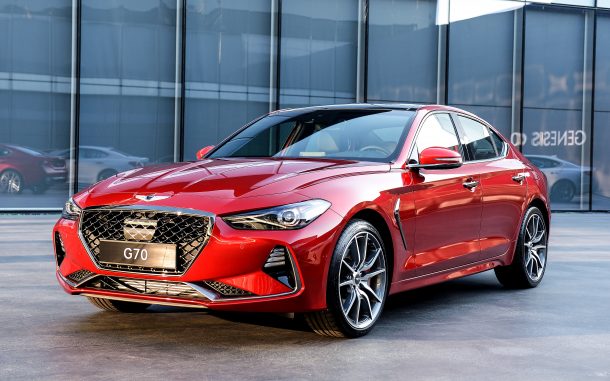
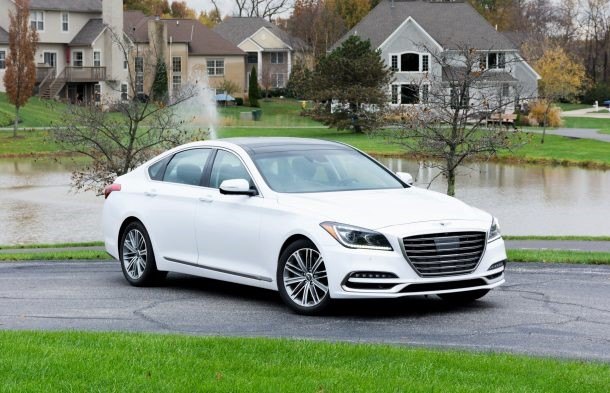

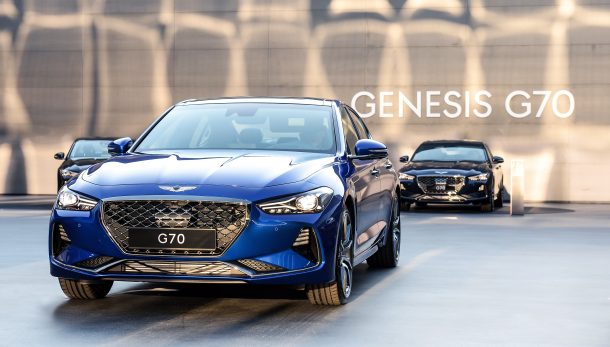

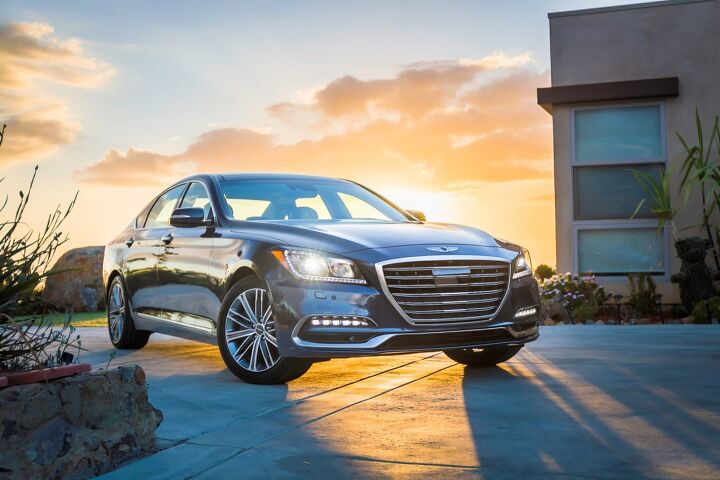
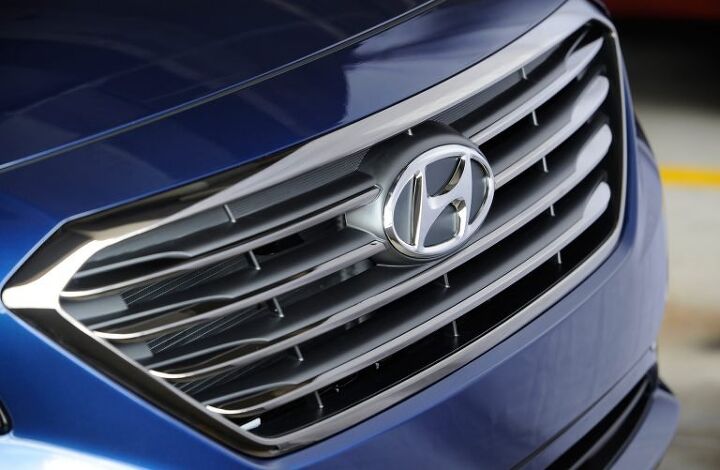

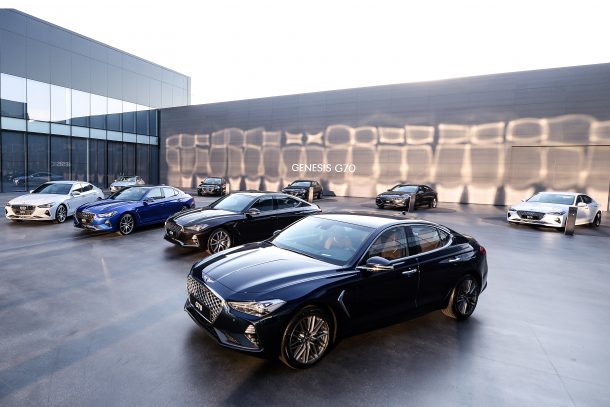




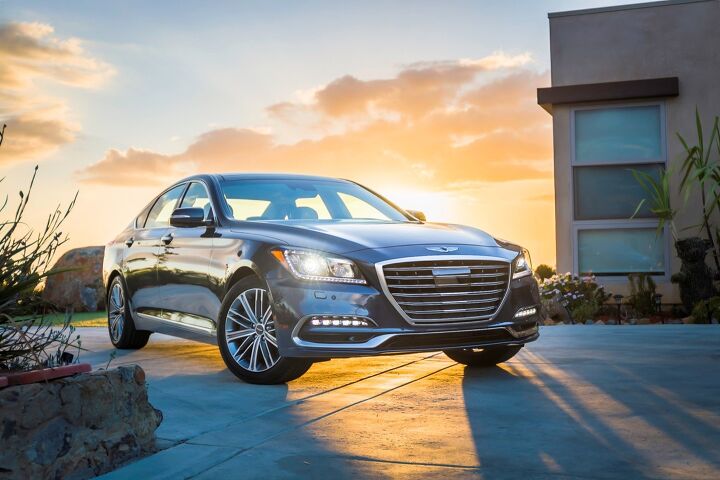












Recent Comments